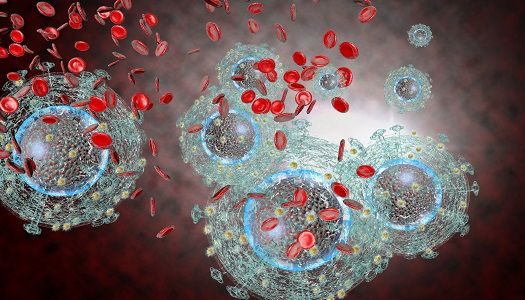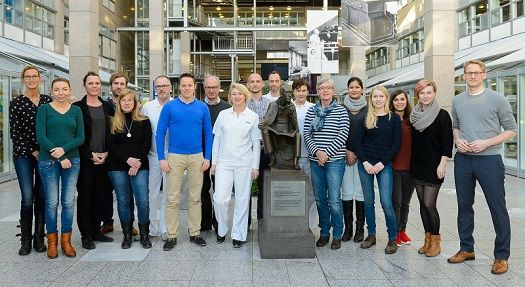Article
Antibody Trial Yields Positive Results to Fight HIV
Author(s):
A new generation of HIV neutralizing antibodies proves to be safe in humans.

Researchers have been excited about the potential of developing a vaccine for human immunodeficiency virus (HIV) using broadly neutralizing antibodies (bNabs). Some people infected with HIV naturally produce bNabs, which directly target their own virus strain. So the thought has been that a vaccine that used bNabs could make a huge impact.
A collaborative team from Rockefeller University in New York and the German Center for Infection Research (DZIF) in Cologne tested a monoclonal antibody from a new generation of HIV neutralizing antibodies, one called 10-1074. The antibody targets the V3 glycan supersite on the HIV-1 envelope protein.
“These antibodies are highly potent and are able to effectively neutralize a large number of different HIV strains. Therefore, they play an important role in the quest for and development of an HIV vaccine,” the study’s principal investigator in Germany, Florian Klein, PhD, said in a news release.
Thirty-three people were given a single intravenous infusion of 10-1074. The antibody had a half-life of 24 days in participants with HIV-1 and 12.8 days in those without the infection. The 13 patients with detectable loads of HIV in their blood (viremia) were given the highest dose of the antibody—30 mg/kg. Of those, 11 were 10-1074-sensitive and viremia rapidly declined by 1.52 logâ‚â‚€ copies/ml.
“We performed a comprehensive HIV sequence analysis to investigate the dynamics and mechanisms HIV uses to escape the selection pressure by the antibody,” explained one of the first authors, Henning Gruell, MD.

The study's researchers (principal investigator in Germany, Florian Klein, PhD (far right))
The results confirmed that 10-1074 is well-tolerated and safe in humans, and the antibody exhibited high antiviral activity in the presence of HIV. In addition, the researchers were able to gain insight on how HIV variants develop treatment resistance.
“Emerging escape variants were generally resistant to the related epitopes, such as the anti-CD4-binding-site antibodies 3BNC117 and VRC01,” the authors wrote in Nature Medicine. This emergence occurred during the first weeks after treatment.
Based on these findings, 10-1074 is a likely candidate for development into a prevention and treatment regimen.
The researchers have already scheduled additional trials to examine this approach starting this upcoming spring.
The study, “Antibody 10-1074 suppresses viremia in HIV-1-infected individuals,” was published in Nature Medicine. The news release and group photo were provided by DZIF.
Related Coverage:
Why Do Some People Get HIV After Exposure But Other Don’t?
HIV Structural Discoveries Could Lead to Advanced Treatments
First Large Trial for Long-Lasting Injectable PrEP Gets Underway





